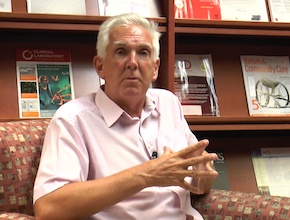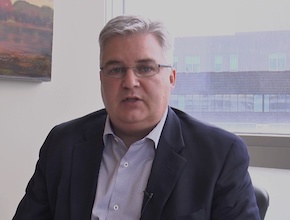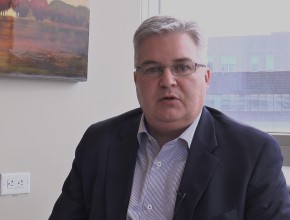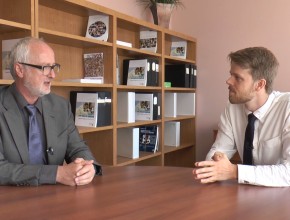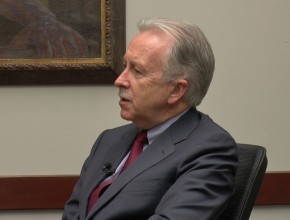Related McMaster Perspective episodes
Devereaux PJ, Jaeschke R. Cardiac complications after noncardiac surgery.Devereaux PJ, Jaeschke R. Interventions tested in prevention of perioperative cardiac events.
References
Devereaux PJ, Sessler DI. Cardiac Complications in Patients Undergoing Major Noncardiac Surgery. N Engl J Med. 2015 Dec 3;373(23):2258-69. doi: 10.1056/NEJMra1502824. Review. PubMed PMID: 26630144.Devereaux PJ, Mrkobrada M, Sessler DI, et al; POISE-2 Investigators. Aspirin in patients undergoing noncardiac surgery. N Engl J Med. 2014 Apr 17;370(16):1494-503. doi: 10.1056/NEJMoa1401105. PubMed PMID: 24679062.
Roman Jaeschke: Doctor Devereaux, you told us that [cardiac complications in patients undergoing noncardiac surgery] are frequent and you told us that regardless of what we do prior to operations, they will occur. Does your research tell us what to do for those patients in whom perioperative myocardial injury did occur? Is there anything we can do to improve their prognosis?
P.J. Devereaux: In patients who are detected to suffer myocardial injury after noncardiac surgery, that is, the troponins are elevated and it is believed due to an ischemic etiology, observational data support that these patients benefit from statin therapy, aspirin therapy, and likely angiotensin-converting-enzyme (ACE) inhibitors both in the intermediate to long term.
Although it may sound contradictory that I just reported that in POISE II aspirin did not prevent perioperative cardiac complications (see: Interventions tested in prevention of perioperative cardiac events), yet the observational data suggest that if you suffer myocardial injury after surgery, aspirin may save your life in 30 days. These data likely are explained, if they are in fact correct, by the fact that once a patient is after surgery and they have not had a major bleed, their risk of subsequent bleeding drops substantially compared to their risk of a recurrent major cardiac event, and this likely may explain why in fact aspirin is beneficial in this setting. The standard of our care at our institution is to start aspirin and to start a statin in these patients and within a day or two, when we are confident hemodynamics are stable, to look at initiating ACE inhibitors therapy in these patients.
RJ: Doctor Devereaux, probably last questions. If you look at the history of the last 10 years, where would you see the field going from now on? What would be your prediction about future developments and future fields to explore?
PJD: [The next major focus in the] perioperative vascular area is to try to build upon the knowledge that we have, which is that ß-blockers do create benefit if given in a perioperative setting – that is, they prevent myocardial infarction. However, they can get patients into trouble and it primarily appears to be through hypotension. We have also demonstrated in a lot of our research that hypotension on surgical floors is common, and it is usually substantially delayed in being detected.
Where our research is going is looking at remote, noninvasive, automated monitors that can continuously, noninvasively measure blood pressure, heart rate, heart rhythm, oxygen saturation, respiratory rate, and even temperature. What we are looking at doing is having patients return to surgical floors with either standard care, or nurses will likely check vitals every 6 hours, or these noninvasive monitors with early alert systems and management plans for early signs of hemodynamic instability or myocardial ischemia. In that setting, where you know the patient is hemodynamic, you may then be able to safely initiate ß-beta blockers in patients who are tachycardiac showing ischemia and hopefully mitigate events. These are the next areas that we are focusing on to improve outcomes.
 English
English
 Español
Español
 українська
українська

